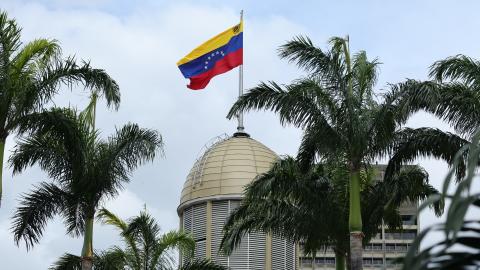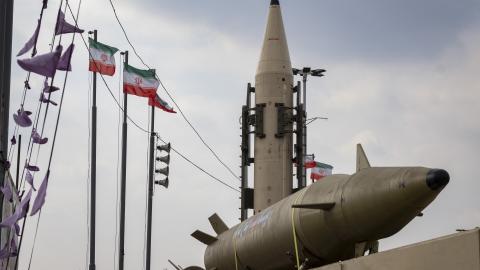British teacher Gillian Gibbons's sentence for blasphemy, and the subsequent demonstrations calling for her death, is one of a series of such incidents that, by their very absurdity, have shone media attention on the perils of accusations of blasphemy, apostasy, and insulting Islam. We need this attention to lead the West to become aware of and address the far wider and more serious political repercussions of such accusations in the Muslim world and beyond.
Examples could be taken from Iran, Saudi Arabia, Egypt, and elsewhere, but Sudan provides enough of its own. In 2005, Mohammed Taha, who edited the al-Wifaq newspaper in Sudan's capital, reprinted an article that debated the background of Mohammed. He was charged with blasphemy, though the charges were later dropped. However, in 2006 his body was found in a Khartoum street. He had been beheaded.
In the early 1990s, Gaspar Biro, the courageous United Nations Special Rapporteur on Sudan, produced a series of reports documenting the National Islamic Front government's massacres, slavery, draconian penal code, and other depredations. In 1994, the NIF (an offshoot of the Muslim Brotherhood) called his work "a vicious attack on the religion of Islam." In 1995, Sudanese officials said "we don't want to speculate about his fate if he is to continue offending the feelings of Muslims worldwide." These accusations of blasphemy were deemed dire enough that the U.N. General Assembly described it as "an unacceptable threat against his person."
Perhaps the most striking instance was Mahmoud Mohamed Taha. He was one of the country's leading Islamic scholars, and a co-founder of the Republican Brotherhood, which pushed, on Islamic grounds, for an open and democratic society. A major opponent of the regime, in January 1985 he was tried and executed on charges that amounted to apostasy because of his views on Islamic teaching.
As these examples show, a major function of blasphemy laws is silencing those who want to debate and discuss the meaning of Islam, particularly those who favor open and democratic societies.
How do we respond? Well, first, with diplomatic pressure to have Ms. Gibbons released, which appears to be progressing. But it is vital not to treat blasphemy accusations and convictions as merely idiosyncratic vagaries of Muslim regimes that simply require a humanitarian response on behalf of the unfortunates involved. Blasphemy charges are the front line of the war of ideas within Islam. If there is to be debate within Islam, we need to work to remove such laws.
A good place to start is for the U.S. to seriously campaign against the ongoing, partly successful, multi-year effort by the Organization of the Islamic Conference to have the United Nations condemn "blasphemy" in the international sphere (an effort couched in the language of combating 'Islamophobia'). A good occasion for this campaign is the preparatory meetings for the 2009 U.N. conference on "Racism," which, under the leadership of Iran, Libya, and Pakistan, is set to condemn all "insults to Islam," whether those purportedly by Ms. Gibbons, or those of political targets such as Gaspar Biro or the Tahas.














